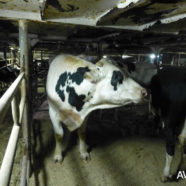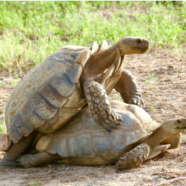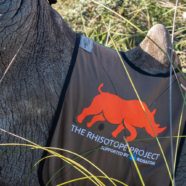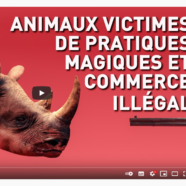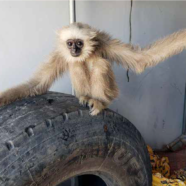On the Trail n°30 – the defaunation bulletin
On the Trail n°30 – July, August and September 2020
1040 events with references, along with analyses, iconographic documents, maps and historical archives
201 pages (pdf), 12 Mo
“On the Trail” is going on with its analysis of the effects of the Covid-19 crisis on poaching and animal smuggling through one thousand or so genuine examples from around the world. In the third quarter of 2020, rumours are taking hold about pangolin meat, feline meat and lion organs being considered miracle cures for Covid-19. The pandemic causes a surge in wildlife plundering. As soon as the pandemic emerged, it caused an upsurge in trapping. In India and Africa, people from the cities returned to the villages, there were many mouths to feed, and poaching increased. In rich countries, recreational hunting is in full swing; people kill deer, bears, moose and birds of prey to kill time. Wildlife trafficking is on the rise on social networks. In Myanmar, transit and force-feeding centres for pangolins waiting to be smuggled to Thailand are full because of the border closures and transport paralysis. Destocking of raw ivory and other wildlife products accumulated during the full disruption of supply chains are beginning to appear. The global market for wild birds is expanding. The Covid-19 crisis has opened up new opportunities with a confined humanity in need of nature.
Like beasts in substandard ships
The report “78 EU-approved livestock carriers” written by Robin des Bois in partnership with the NGOs Animal Welfare Foundation and Tierschutzbund Zürich is more than damning. It is sharp.
Record turtle seizure in Burkina Faso
On Tuesday, June 8, 555 juvenile African spurred tortoises were rescued from international trafficking by customs officers in Koudougou, Boulkiemdé province. They were hidden in the baggage compartment of a bus travelling between Bamako in Mali and Lomé in Togo. They were placed in wooden crates, cardboard boxes and canvas and plastic bags. False CITES permits accompanied the shipment. CITES is the Convention on International Trade in Endangered Species of Wild Fauna and Flora. The African spurred tortoises are listed in Appendix II. Their international trade is still allowed. Export permits are required. The seizure is the result of cooperation between Mali Customs and Burkina Faso Customs.
Radioactive rhinos
Rosatom, the prime contractor and spearhead of the Russian nuclear industry, has found a new way to extend its influence on the African continent in the fight against poaching.
Killings in the Arly National Park in Burkina Faso
Rory Young, co-founder and CEO of Chengeta Wildlife, David Beriáin and Roberto Fraile, Spanish reporters, were murdered on 26 April 2021 in Arly National Park in Burkina Faso while participating in an anti-poaching patrol with soldiers and rangers. One Burkinabé is still missing. The Arly park is home to elephants, lions and leopards. In 2015, Robin des Bois praised the work of Rory Young in its bulletin “On the Trail” dedicated to poaching and smuggling.
Extract from “On the Trail” n°9 p.75 :
Arrest of 81 suspected poachers. Malawi. May 2015.
Rory Young is a specialist of the anti-poaching battle. He joined the French Foreign Legion when still very young and later becomes a forest ranger in Zimbabwe after 5 years of training. Yet he’s no warmonger. On mission in Malawi, he helps the wildlife agents use to their furthest extent the meager logistical resources at their disposal. 33 poachers have been arrested in 15 days during the month of April around Livonde by 30 rangers who have nothing more than a car and a half and an old boat. A true success compared to the 28 arrests made in all of April in Kruger Park watched over by thousands of guards, drones, helicopters and to some extent by thousands of tourists.
On the Trail n°29 – The defaunation bulletin
On the Trail n°29 – April, May and June 2020
990 events with references, along with analyses,
iconographic documents, maps and historical archives
182 pages (pdf), 11.6 Mo
On the Trail n°29 – The defaunation bulletin
On the Trail n°29 – April, May and June 2020
990 events with references, along with analyses,
iconographic documents, maps and historical archives
182 pages (pdf), 11.6 Mo
On the Trail n°29 – The defaunation bulletin
On the Trail n°29 – April, May and June 2020
990 events with references, along with analyses,
iconographic documents, maps and historical archives
182 pages (pdf), 11.6 Mo
On the Trail n°29 – The defaunation bulletin
On the Trail n°29 – April, May and June 2020
990 events with references, along with analyses,
iconographic documents, maps and historical archives
182 pages (pdf), 11.6 Mo






